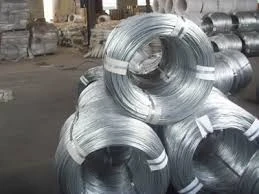wire mesh screen material
Understanding Wire Mesh Screen Materials A Overview
Wire mesh screens are versatile tools widely used in various industries, ranging from construction to food processing. Understanding the types of wire mesh screen materials, their properties, and applications can help in selecting the right material for specific needs.
What is Wire Mesh?
Wire mesh is a network of interlocking wires that creates a grid-like structure. It is manufactured through processes such as weaving, welding, or knitting. The mesh can be made from different materials, and its characteristics can be tailored for specific applications.
Key Materials Used in Wire Mesh Screens
1. Stainless Steel Stainless steel wire mesh is one of the most commonly used materials due to its exceptional strength and resistance to corrosion. This makes it ideal for environments where exposure to moisture and chemicals is a concern. Stainless steel is also easy to clean, which makes it suitable for applications in the food and beverage industry. The mesh is available in various grades, with Type 304 and Type 316 being the most popular. Type 316 offers higher resistance to saltwater corrosion, making it preferable for marine applications.
2. Carbon Steel Carbon steel wire mesh is another widely used material. It is strong and durable, making it a cost-effective choice for many applications. However, carbon steel is prone to rusting, so it is often coated with a layer of zinc (galvanized) or painted to improve its resistance to corrosion. This makes galvanized carbon steel wire mesh ideal for outdoor applications, such as fencing, where it is exposed to the elements.
3. Aluminum Aluminum wire mesh is lightweight yet strong, making it an excellent choice for applications that require a balance between weight and strength. It is naturally resistant to corrosion, which makes it suitable for various environments, including coastal areas. Aluminum mesh is commonly used for ventilation screens and architectural applications, offering aesthetic benefits along with functionality.
4. Fiberglass Fiberglass mesh is not a metal but a synthetic material often used in applications where lightweight and flexibility are required. It is commonly used in screen doors and windows, as it does not rust and is resistant to decay. Additionally, fiberglass wire mesh can be treated with a coating that enhances its UV resistance, making it suitable for outdoor applications.
5. Brass and Bronze Brass and bronze wire meshes offer unique aesthetic qualities and corrosion resistance. These materials are often used in decorative applications and architectural elements. Brass wire mesh is known for its beautiful golden hue, while bronze offers a rich, warm color. Both materials are also resistant to corrosion, making them suitable for a variety of environments, including marine applications.
wire mesh screen material

Applications of Wire Mesh Screens
The applications of wire mesh screens are vast and diverse. Here are a few prominent uses
- Filtration Wire mesh screens are extensively used in the filtration industry. They help separate particles from liquids and gases, making them essential in water treatment plants, chemical processing, and food production.
- Fencing Due to their strength and durability, wire mesh screens are commonly used in security and agricultural fencing. They can keep animals contained while allowing for airflow and visibility.
- Construction Wire mesh is employed in construction for reinforcement in concrete, providing structural stability and strength to buildings and pavements.
- Ventilation Many industrial applications require proper air circulation, and wire mesh screens provide an excellent solution, allowing for ventilation while keeping out unwanted pests.
- Architectural Elements Decorative wire mesh is often utilized in architecture and design. It can be found in façades, railings, and various other applications that require both function and aesthetics.
Conclusion
Wire mesh screen materials play a crucial role in numerous industries, each material offering unique benefits tailored to specific applications. By understanding the types of wire mesh and their properties, users can choose the right product to meet their specific needs, ensuring efficiency, durability, and aesthetic appeal in their projects. Whether you’re looking for corrosion resistance, strength, or lightweight characteristics, there’s a wire mesh material that fits the bill.
-
Space-Saving Chain Fence Hacks Vertical Gardening with Cyclone MeshNewsJul.16,2025
-
Innovations in Iron Nail Wire Production for Modern ConstructionNewsJul.16,2025
-
Creative Uses of Wire Netting Fence in Modern Landscape DesignNewsJul.16,2025
-
Barbed Wire Fence Innovations in Anti-Climb TechnologyNewsJul.16,2025
-
Architectural Uses of Umbrella Nails for Aesthetic Roof DesignsNewsJul.16,2025
-
Architectural Uses of Razor Barbed Wire in Secure Urban DesignNewsJul.16,2025




